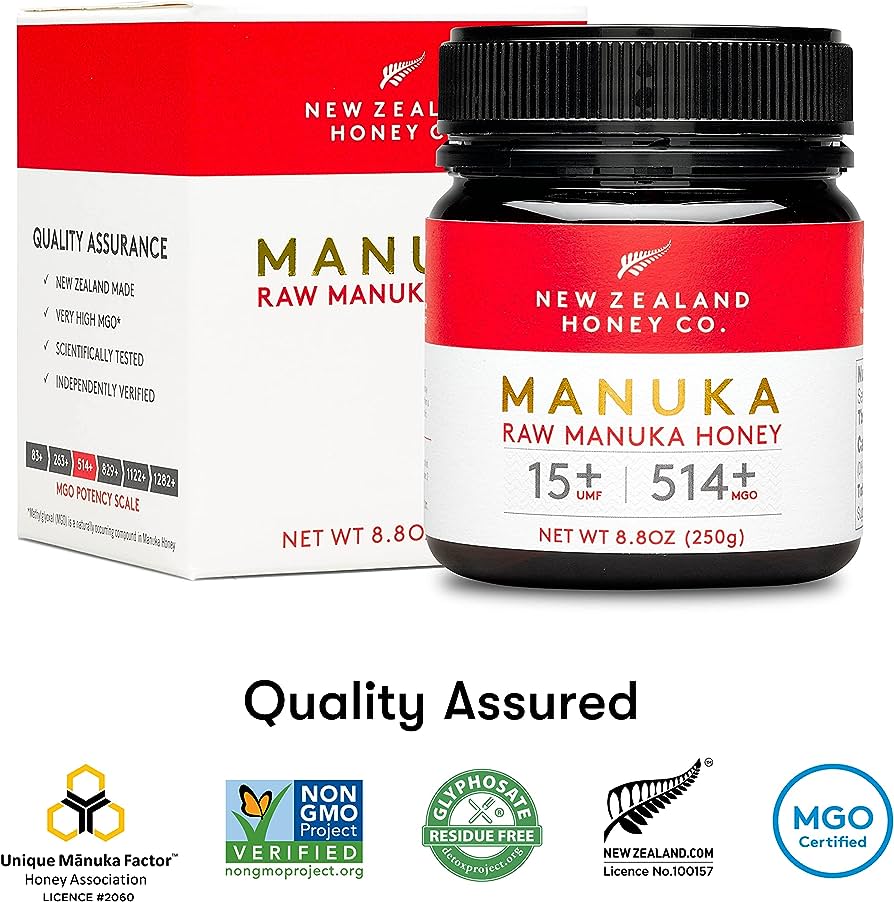
If you’re curious about how to get your hands on some delicious and authentic Manuka honey straight from the pristine lands of New Zealand, then this article is for you. Whether you’re a honey enthusiast or just looking to try something new, we’ll guide you through the process of buying high-quality Manuka honey from trusted sources in New Zealand. From understanding the unique grading system to knowing what to look for in a reputable brand, we’ve got you covered. Get ready to explore the world of Manuka honey and discover its exquisite taste and numerous health benefits.
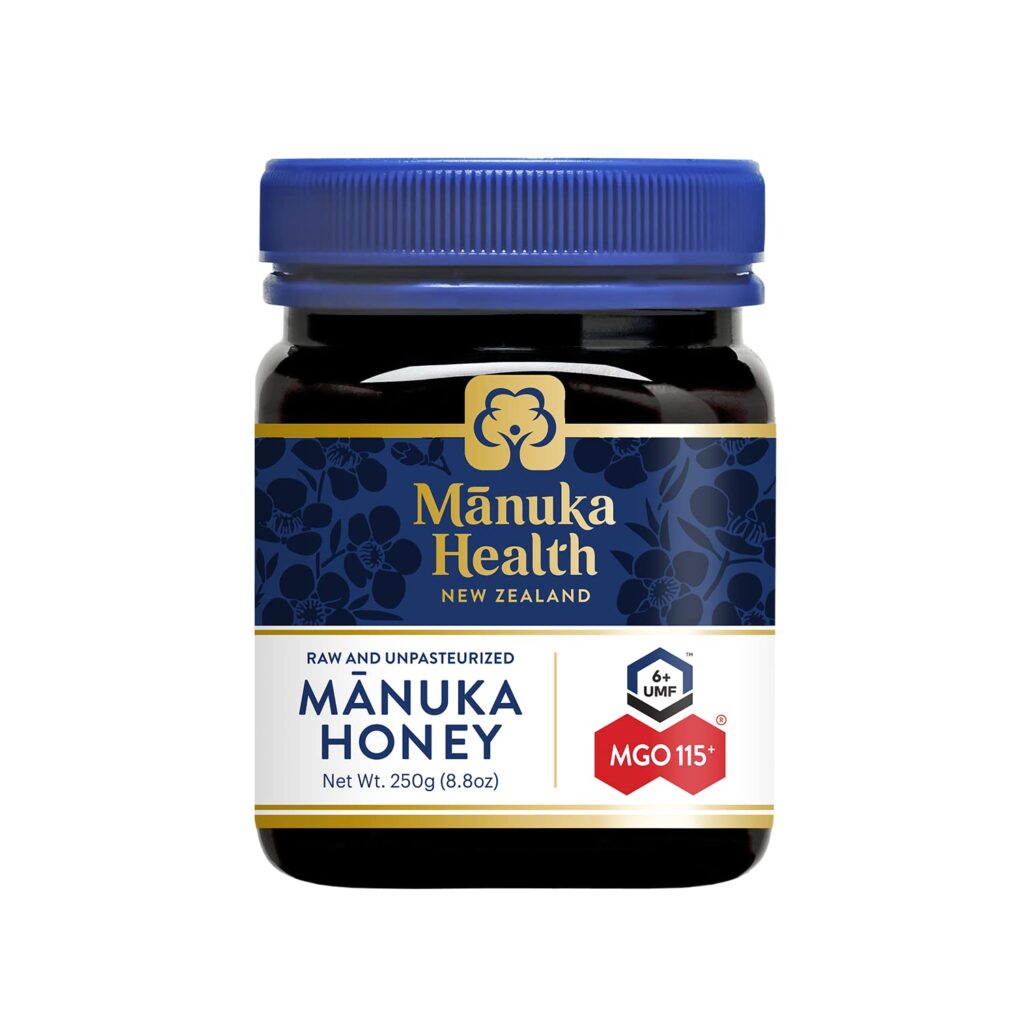
Choosing the Right Manuka Honey
Understanding the Unique Qualities of Manuka Honey
When it comes to choosing the right Manuka honey, it’s important to understand its unique qualities. Manuka honey is a special type of honey that comes from the nectar of the Manuka bush found in New Zealand. What sets it apart from other types of honey is its high concentration of Methylglyoxal (MGO) and Unique Manuka Factor (UMF). These compounds give Manuka honey its potent antimicrobial properties and make it highly sought after for its potential health benefits. By understanding the qualities of Manuka honey, you can make an informed decision when selecting the right one for you.
Determining the UMF/MGO Rating
One of the key factors to consider when choosing Manuka honey is its UMF or MGO rating. The UMF rating is a quality marker that indicates the concentration of the unique compounds in the honey. The higher the UMF rating, the more potent the honey is likely to be. Similarly, the MGO rating measures the level of Methylglyoxal in the honey. Both ratings are instrumental in determining the antibacterial strength of Manuka honey. It’s important to note that there is no direct conversion between UMF and MGO ratings, so it’s crucial to understand which rating system is being used when comparing different brands.
Checking for Authenticity
With the rising demand for Manuka honey, there has unfortunately been an increase in counterfeit products in the market. To ensure that you are purchasing authentic Manuka honey, you need to check for authenticity. Look for reputable brands that have undergone independent testing for the UMF or MGO rating. You can also verify the authenticity by checking for a license number issued by the Unique Manuka Factor Honey Association (UMFHA). This third-party organization guarantees the quality and authenticity of Manuka honey. By purchasing from certified suppliers, you can rest assured that you are getting the real deal.
Finding Reliable Suppliers
Researching Online Suppliers
When searching for reliable suppliers of Manuka honey, the internet can be a valuable resource. Start by researching online suppliers who specialize in New Zealand products. Look for suppliers who have been in business for a significant amount of time and have a good reputation in the industry. Read through their website to learn about their sourcing methods, certifications, and quality control processes. Additionally, check if they provide detailed information about their products, including UMF or MGO ratings and testing reports. Conducting thorough research can help you identify reputable online suppliers.
Checking for Certifications
A crucial aspect of finding reliable suppliers is checking for certifications. Look for suppliers that have received certifications from recognized organizations such as UMFHA or the Ministry for Primary Industries (MPI) in New Zealand. These certifications indicate that the honey has been tested and meets the required standards for Manuka honey. Certifications not only guarantee the authenticity of the honey but also assure you that it has been produced under strict regulations. Suppliers that display these certifications are committed to providing high-quality products, making them a trustworthy option.
Reading Customer Reviews
Customer reviews are an invaluable resource when it comes to finding reliable suppliers. Take the time to read through reviews and testimonials from other customers who have purchased Manuka honey from the supplier you are considering. Look for consistent positive feedback regarding the quality, authenticity, and customer service provided by the supplier. Pay attention to any negative reviews as well, as they can provide insights into potential issues or concerns. By considering the experiences of other customers, you can make a more informed decision and choose a supplier that has a proven track record of customer satisfaction.
Comparing Prices and Brands
Understanding the Price Range
When comparing prices of Manuka honey, it’s important to understand the price range and what factors contribute to the differences in cost. Manuka honey is generally more expensive than other types of honey due to its unique properties and limited availability. Factors such as the UMF or MGO rating, the region it was sourced from, and the brand reputation can all influence the price. Higher UMF or MGO rated honey will generally come with a higher price tag. It’s essential to consider the price range and choose a product that not only fits your budget but also meets your desired quality criteria.
Evaluating Brand Reputation
Brand reputation plays a significant role in the quality and consistency of Manuka honey. Established brands with a strong reputation have likely built their name through years of providing high-quality products. They often have stringent quality control processes in place and follow industry best practices to ensure their honey is of exceptional quality. Evaluating the brand reputation can be done by researching their history in the market, reading customer reviews, and looking for any industry recognition or awards they may have received. Opting for reputable brands can give you peace of mind knowing that you are purchasing a reliable product.
Considering Organic and Sustainable Options
If you are conscious of organic and sustainable practices, consider opting for Manuka honey that is certified organic and sustainably sourced. Organic certification ensures that the honey has been produced without the use of pesticides or synthetic chemicals, ensuring a more natural product. Additionally, choosing honey that is sustainably sourced contributes to the preservation of the Manuka bush and the ecosystems it supports. Look for suppliers who prioritize sustainability and have certifications such as BioGro or the CarbonZero certification. By selecting organic and sustainable options, you can support environmentally friendly practices and contribute to a healthier planet.
Deciding on the Quantity
Determining Personal Consumption
When deciding on the quantity of Manuka honey to purchase, consider your personal consumption needs. How frequently do you use honey? Do you plan to use it for everyday purposes or for specific health benefits? Understanding your consumption habits will help you determine the amount of honey you will need. Consider factors such as using it as a sweetener in beverages or recipes, adding it to skincare products, or using it medicinally. By assessing your personal consumption, you can avoid purchasing excessive amounts of honey that may go to waste or not meeting your needs.
Considering the Shelf Life
Manuka honey has an impressive shelf life thanks to its natural antimicrobial properties. When stored properly, it can last for years without spoiling. However, it’s still important to consider the shelf life when deciding on the quantity to purchase. Evaluate how quickly you can reasonably consume the honey before it reaches its best before date. If you know you won’t be able to finish a large quantity within a reasonable timeframe, it may be more practical to purchase smaller quantities or consider purchasing from suppliers who offer sample sizes. This ensures that you always have fresh honey on hand for optimal consumption.
Weighing Practicality and Budget
Practicality and budget are crucial factors to consider when deciding on the quantity of Manuka honey to purchase. While buying in bulk may seem cost-effective upfront, it may not be practical if you cannot reasonably consume the honey before it expires. Consider your budget and whether it makes more sense financially to purchase smaller quantities that you can consume within a reasonable timeframe. This approach ensures that you always have fresh honey available and that you are making the most of your investment. Balance your practicality and budget to find the right quantity that suits your needs.
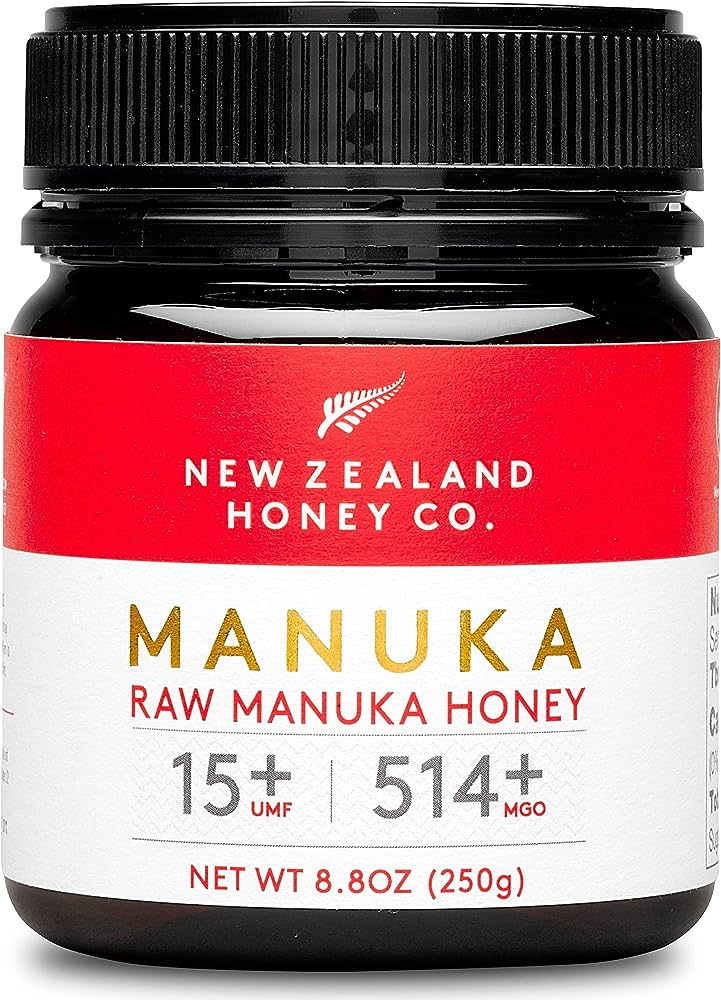
Understanding Packaging and Labelling
Reading Product Labels
Product labels provide valuable information about the honey you are considering purchasing. Take the time to read and understand the information provided on the labels. Look for details such as the UMF or MGO rating, the country of origin (New Zealand), and any certifications or awards the honey has received. Reading the product labels can also provide insights into the honey’s ingredients, storage instructions, and usage recommendations. Understanding the information on the labels allows you to make an informed decision and ensures that you are purchasing the right honey for your specific needs.
Checking for Proper Sealing
To ensure the freshness and quality of Manuka honey, it’s essential to check for proper sealing. Honey is a hygroscopic substance, meaning it absorbs moisture from the air. Improperly sealed packaging can lead to the honey being exposed to moisture, which can compromise its quality over time. When assessing the packaging, look for a tightly sealed container that prevents air or moisture from entering. Common types of packaging for Manuka honey include jars and tubes, both of which can provide excellent sealing when properly closed. Checking for proper sealing guarantees that you are purchasing honey that maintains its freshness and quality.
Considering Different Packaging Types
Manuka honey is available in various packaging types, each offering its unique benefits and considerations. Jars are a popular choice as they are easily resealable and visually appealing. However, they may not be the most practical option for travel or on-the-go use. Tubes, on the other hand, are more portable and convenient, allowing for easy application wherever you may need it. Consider your specific needs and preferences when choosing a packaging type. Whether you prioritize convenience, aesthetics, or storage capacity, selecting the right packaging type ensures that you can use and store your Manuka honey with ease.
Buying Directly from New Zealand
Exploring Online Retailers in New Zealand
To ensure the authenticity and quality of Manuka honey, one option to consider is buying directly from retailers based in New Zealand. New Zealand is the home of Manuka honey, and by purchasing from local retailers, you have a higher chance of getting a genuine product. Explore online retailers that specialize in New Zealand products and specifically mention the sourcing of their honey from New Zealand. These retailers often have a deep understanding of Manuka honey and offer a wide range of options to choose from. Buying from New Zealand-based retailers allows you to directly support the local honey industry while enjoying the authentic taste and benefits of Manuka honey.
Understanding Import Regulations
When buying Manuka honey from New Zealand, it’s important to understand the import regulations of your country. Different countries have varying restrictions and requirements for importing food products, including honey. Familiarize yourself with the import regulations of your country to ensure that you can legally receive the honey. This may involve checking with your local customs office or relevant government agencies. Understanding the import regulations helps avoid any issues or delays in receiving your honey and ensures a smooth purchasing process.
Calculating Shipping Costs and Delivery Time
When purchasing Manuka honey from New Zealand, consider the additional costs and delivery time associated with shipping. Shipping costs can vary depending on the weight of the package, the shipping method selected, and the destination. Calculate the shipping costs and factor them into your budget when making a purchasing decision. Additionally, consider the delivery time and any potential delays that may occur during transit. It’s also advisable to inquire about the shipping provider’s policies regarding damaged or lost packages to ensure you are protected in case of any unforeseen circumstances. By calculating shipping costs and considering delivery time, you can plan your purchase effectively and avoid any surprises.
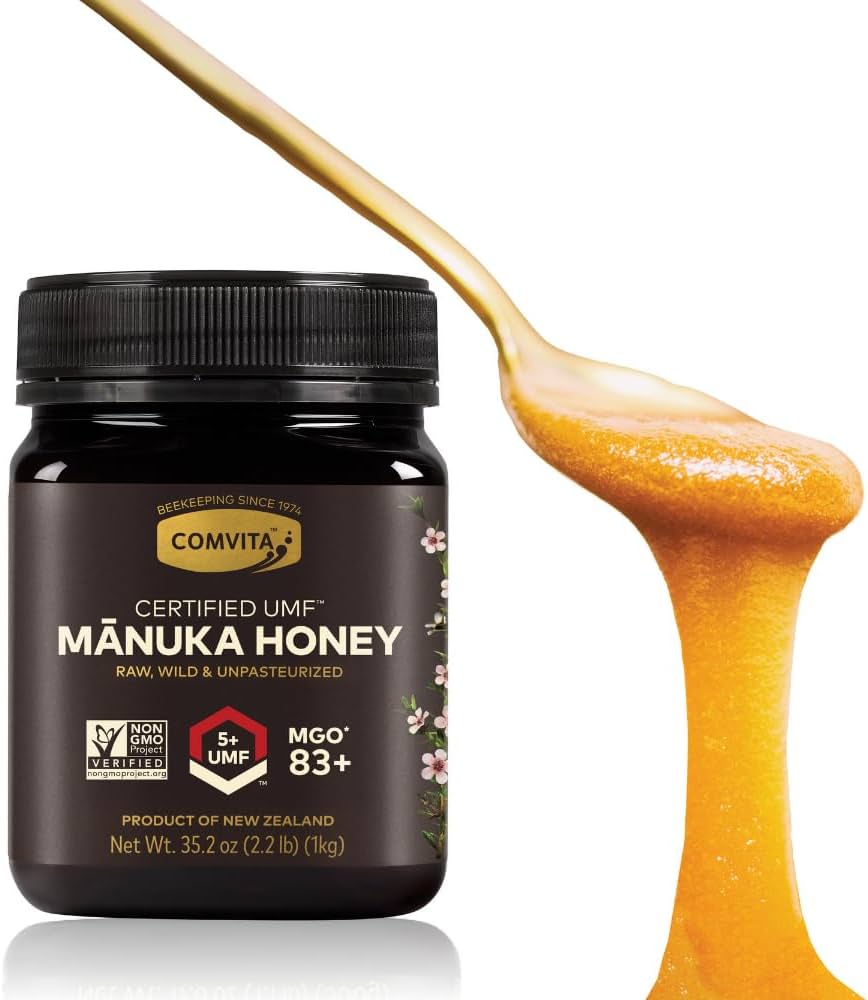
Making Informed Purchasing Decisions
Requesting Samples or Small Sizes
To make an informed purchasing decision, consider requesting samples or purchasing small sizes of Manuka honey before committing to a larger quantity. Many suppliers offer sample sizes or trial packs that allow you to experience the flavor and quality of their honey. Sampling different brands or UMF/ MGO ratings can help you find the one that suits your taste preferences and desired benefits. By trying out samples, you can make a more confident decision and invest in larger quantities of the honey that you know you’ll enjoy.
Seeking Expert Recommendations
If you are uncertain about which Manuka honey to purchase, seek expert recommendations. Reach out to nutritionists, naturopaths, or individuals who have extensive knowledge and experience with Manuka honey. They can provide valuable insights into different brands, UMF/ MGO ratings, and specific benefits that may align with your needs. Expert recommendations can help guide you in the right direction and make your purchasing decision much easier. Don’t hesitate to ask for advice from those who specialize in the field to ensure you are getting the best honey for your specific requirements.
Considering Additional Benefits
Aside from the unique properties of Manuka honey, consider additional benefits that certain brands or products may offer. Some suppliers may offer honey with added ingredients such as royal jelly, propolis, or bee pollen, which provide additional health benefits. These added ingredients can enhance the overall nutritional profile and therapeutic potential of the honey. If you have specific health goals or are looking for a more potent honey, considering these additional benefits can help you find a product that aligns with your needs and preferences.
Avoiding Counterfeit Products
Beware of Unrealistically Low Prices
When shopping for Manuka honey, be wary of unrealistically low prices. As the demand for Manuka honey continues to rise, counterfeit products have emerged in the market. These counterfeit products are often priced significantly lower than authentic Manuka honey, enticing consumers with seemingly great deals. However, purchasing counterfeit honey not only means you are not getting the desirable health benefits but also supporting dishonest practices. Remember the saying, “If it seems too good to be true, it probably is.” Stick to reputable brands and suppliers to ensure that you are purchasing genuine Manuka honey.
Verifying Packaging & Branding Claims
Counterfeit products often mimic the packaging and branding of reputable brands to deceive consumers. They may use similar logos, labels, and even certifications to create a false sense of authenticity. To avoid falling victim to counterfeit honey, be vigilant in verifying packaging and branding claims. Cross-reference the information provided on the packaging with the official website or authorized retailers. Check for discrepancies in labels, spelling errors, or any other inconsistencies. By thoroughly examining the packaging and branding, you can minimize the risk of purchasing counterfeit honey.
Double-Checking Seller’s Reputation
When purchasing Manuka honey, it’s essential to double-check the seller’s reputation. Whether you are buying from a physical store or an online retailer, take the time to research their reputation and credibility. Look for customer reviews, testimonials, and feedback regarding their business practices, product quality, and customer service. Pay attention to any red flags or negative reviews that indicate potential issues. Trustworthy sellers prioritize customer satisfaction and are transparent about their products and practices. By verifying the seller’s reputation, you can make an informed decision and purchase your honey from a reliable source.
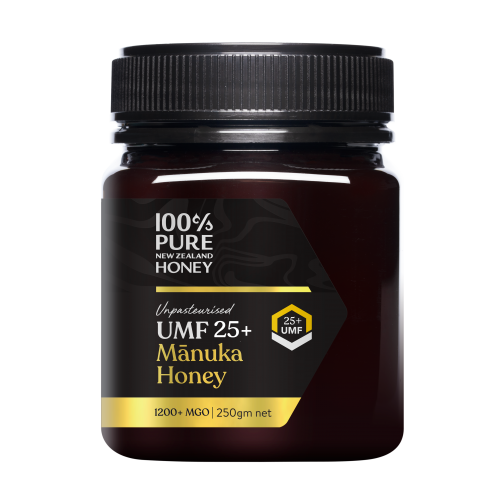
Ensuring Quality and Freshness
Checking for Batch and Best Before Dates
To ensure the quality and freshness of Manuka honey, it’s crucial to check for batch and best before dates. Batch dates indicate the date of production, allowing you to determine how recently the honey was harvested and packaged. Best before dates indicate the timeframe within which the honey is guaranteed to retain its optimal quality. Check for these dates on the packaging and prioritize honey that has been recently produced and has a longer shelf life ahead. By checking for batch and best before dates, you can ensure that you are purchasing honey that is at its peak freshness.
Inspecting the Honey’s Appearance and Aroma
Another way to ensure the quality of Manuka honey is by inspecting its appearance and aroma. Authentic Manuka honey typically has a thick, creamy texture, ranging in color from a golden amber to a rich dark brown. The aroma is distinct, with a strong, earthy, and slightly medicinal scent. When examining the honey, avoid any signs of crystallization or separation, as these may indicate improper storage or processing. Additionally, trust your nose to detect any off-putting or artificial smells, as they may suggest a low-quality or adulterated product. By inspecting the honey’s appearance and aroma, you can make a more informed decision about its quality.
Understand the Ratio of Manuka Pollen
Manuka honey’s distinctive properties come from the nectar of the Manuka bush and the presence of Manuka pollen. The higher the ratio of Manuka pollen in the honey, the higher the quality and potential health benefits. Some suppliers may provide information about the pollen ratio, which gives you valuable insights into the quality and authenticity of the honey. A higher pollen ratio indicates that the honey is sourced predominantly from Manuka flowers, ensuring its potency. Understanding the ratio of Manuka pollen can help you choose a honey that offers the maximum benefits and aligns with your desired quality standards.
Understanding Return and Refund Policies
Reading the Fine Print
Before making a purchase, carefully read the return and refund policies of the supplier. While it’s always best to make an informed decision and choose the right honey from the beginning, unforeseen circumstances may sometimes necessitate a return or refund. Understanding the supplier’s policies regarding returns, exchanges, and refunds ensures that you have recourse if you are unsatisfied with your purchase. Pay attention to any specific conditions or requirements for returns, such as the timeframe within which you can initiate a return or the condition in which the product must be returned. By reading the fine print, you can have peace of mind knowing your rights as a consumer.
Knowing the Timeframe for Returns
Knowing the timeframe for returns is essential, particularly if you are purchasing from an online retailer. Different suppliers may have varying policies, so be sure to check how long you have to return the product if needed. Keep in mind that some suppliers may have stricter timeframes for returns, especially if the product has been opened or used. Prioritize suppliers who offer a reasonable return timeframe to ensure that you have sufficient time to evaluate the honey and make an informed decision about keeping it or returning it if necessary.
Understanding Refund Processes
In addition to knowing the timeframe for returns, it’s important to understand the refund processes of the supplier. If you are eligible for a refund, familiarize yourself with the steps required to initiate the refund and how it will be processed. Some suppliers may issue refunds in the form of store credit, while others may provide a refund directly to the original payment method. Understanding the refund processes ensures that you are aware of the steps involved and any potential fees or conditions associated with the refund. By having a clear understanding of the supplier’s refund processes, you can navigate the return process smoothly if needed.
In conclusion, buying Manuka honey from New Zealand requires careful consideration and attention to detail. By understanding the unique qualities of Manuka honey, checking for authenticity, researching reliable suppliers, comparing prices and brands, and considering factors such as quantity, packaging, and return policies, you can make an informed purchasing decision. Remember to prioritize reputable suppliers, check for certifications, and verify the authenticity of the honey before making a final purchase. With these guidelines in mind, you can confidently choose the right Manuka honey that suits your preferences, needs, and budget. Happy honey hunting!
